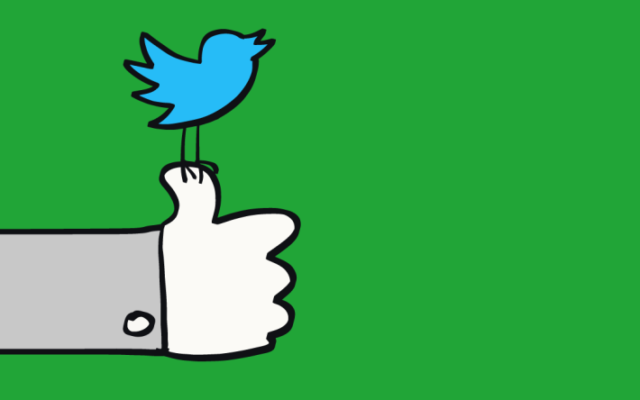I wish I could say I had an excellent start to this year, but a huge flight delay made it less so. In brief, a 30-hour delay on a flight from Mexico City to London. That wasn’t the bad part. It was the fact that the airline (British Airways) did not communicate anything about why there was a delay, or give an accurate re-departure time. Which left us wondering until midnight on 1 Jan 2016 if our return flight was at 6am, as the website stated, or at 12pm as the airport were telling us.
It struck me, that at my major point of frustration, the only way I could communicate with BA at 10pm Mexico time (4am UK time) was via Twitter. Strange for a global airline. Not that their customer service representatives were particularl y helpful, as they knew as much as us. Actually, we knew more. At that point I thought I would vent at Keith Williams, the CEO. But guess what? Mr Williams is not on Twitter. And that left me wondering why not? It certainly would have assuaged my irritation if I had been able to send a public message, even if it generated zero response. Instead, I took to the old fashioned method and sent him an email. (Incidentally Mr Williams is the outgoing CEO at BA but he is still in the post until April).
y helpful, as they knew as much as us. Actually, we knew more. At that point I thought I would vent at Keith Williams, the CEO. But guess what? Mr Williams is not on Twitter. And that left me wondering why not? It certainly would have assuaged my irritation if I had been able to send a public message, even if it generated zero response. Instead, I took to the old fashioned method and sent him an email. (Incidentally Mr Williams is the outgoing CEO at BA but he is still in the post until April).
So, to tweet or not? It’s a decision for any CEO to make in this era of social media. Or is it? In 2015, social data intelligence firm Talkwalker found that only seven percent of FTSE 100 CEOs were on Twitter. That’s SEVEN PERCENT. Painfully low. Talkwalker summed it up nicely: “Ignoring Twitter is like letting the phone ring. Twitter is not a parallel universe for egocentric celebs and chatty customer services. It is a dynamic forum in which a CEO can lead from the front, extend influence, impress stakeholders, set a corporate benchmark and show staff how to engage with their stakeholders.”
Clearly, it can be a double edged sword and have an adverse impact on a company’s valuation and reputation. Not all CEOs are natural communicators and maybe some should “let the phone ring”. Tony Hayward (ex-BP CEO) springs to mind with his “I’d like my life back” comments. “A PR soundbite from hell” was how the NY Times put it…And Bob Diamond certainly ruffled quite a few feathers with his investment bank-esque approach (read arrogance) when things went south at Barclays.
Whenever I’m at our summits where we regularly bring together C-suite executives, tweeting seems to be an integral part of business life. Here are five reasons why the pros of taking to Twitter infinitely outweigh the cons:
1) In a 24 hour rolling news world, where radio and television networks can control the message and take the power away, the CEO can take the control back. No need to wait for a live interview or to be contacted by a journalist for a response, they can get their own view out there. This can be a powerful medium in a crisis. Take Tony Fernandes, CEO of Air Asia when the Indonesia flight QZ8501 to Singapore went missing (and was subsequently found to have crashed). Fernandes was very active on Twitter, posting updates, rallying staff and, most importantly, – expressing his sorrow. His tweets were appreciated in the midst of a very difficult situation.
2) It builds brand loyalty and trust. People like to hear from the person at the top, it puts a personality on just a name, and numerous surveys have found that as a result consumers develop a higher level of confidence in a company’s leadership. Virgin’s Richard Branson is a good example. A prolific tweeter, (10.5k and counting), he has over seven million followers. That’s a lot of reach. For him, “Twitter is a way to communicate with people in real-time, highlight good causes and above all have fun”. As a Branson follower, you definitely get a sense of his personality, his family and his take on life from his tweets. Not a bad thing for a CEO to be human. Here’s one tweet that shows exactly that:https://twitter.com/richardbranson/status/685122536988880896
3) You can engage with your employees. Join the 21st century, get rid of the ivory tower mentality and let your employees know your thoughts, your plans for the company and build connections internally. It’s a good communication tool.
4) It makes business sense. Feedback is always the most crucial part for any business, and if customers feel they can feed back in an easy, uncomplicated way, they will. It may mean a business can respond much faster about issues with products and services. Tweeting to the top can also mean the person empowered to make change can actually make it. It connects businesses with their customers in a much more intimate way.
5) It’s where your audience is. And let’s face it, who wouldn’t want to be there? For outgoing Guardian Media Group CEO, Andrew Miller, it’s where his readers are. Jacqueline Gold, CEO of Ann Summers, has used Twitter to connect with and inspire other female entrepreneurs. She conducts a weekly Women on Wednesday (#WOW) Q&A session to give business advice. It started in 2011 and it’s still going strong.
So come on, give it a shot, or should that be a tweet. It doesn’t require much effort, just some wisdom. Take some tips from legendary investor Warren Buffett who has over a million followers to date with just seven tweets to his name. His opening line: “Warren is in the house.” Nice work Mr Buffett. Now let’s see if any of your peers want to join you.
Some of the CEOs who are active on Twitter. (Data as of 12 Jan 2016)
Bill Gates – 26.6 million followers, 1,902 tweets.
Richard Branson – 7.07 million followers, 10,500 tweets.
Rupert Murdoch – 702,000 followers, 1,662 tweets.
Meg Whitman – 234,000 followers, 799 tweets.
Elon Musk – 3.21 million followers, 1,518 tweets.
Indra Nooyi – 3,568 followers, 12 tweets.
Article by channel:
Everything you need to know about Digital Transformation
The best articles, news and events direct to your inbox
Read more articles tagged: Featured, Social Media






